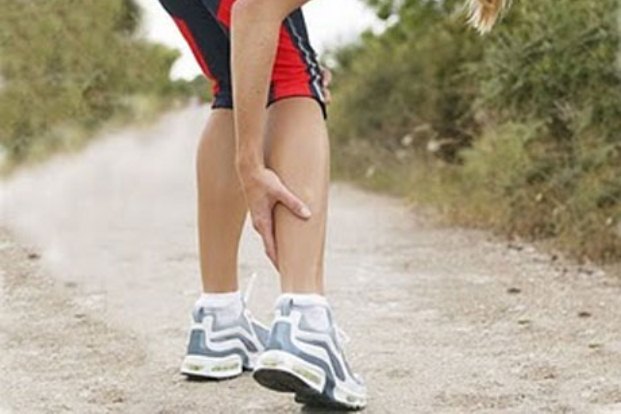Categories
- Bariatric Surgery (11)
- Black Fungus (5)
- Bone Marrow transplant (3)
- Brain Tumor Surgery Navigation Technology (20)
- Cardiac Surgery (66)
- Cardiology (97)
- Computer navigation technology for joint replacements (20)
- Covid Vaccination (17)
- Critical Care (2)
- Dental (19)
- Dermatology (31)
- Dialysis Support Group - “UTSAAH” (11)
- Dietitian (33)
- Emergency Medicine (4)
- Emotional Health (11)
- Endocrinology (33)
- ENT (20)
- Gastroenterology and GI Surgery (53)
- General and Laparoscopic Surgery (21)
- General Surgery (4)
- Gynecology & Obstetrics (183)
- Hematology (20)
- Internal Medicine (294)
- Kidney Transplant (50)
- Kidney Transplantation (20)
- Lung Cancer (8)
- Minimal Invasive Surgery (1)
- Mother & Child (20)
- mucormycosis (5)
- Nephrology (61)
- Neurology (147)
- Neurosurgery (68)
- Nutrition and Dietetics (107)
- Omicron Variant (1)
- Oncology (288)
- Ophthalmology (10)
- Orthopaedics & Joint Replacement (86)
- Paediatrics (59)
- Pediatric Nephrology (3)
- Physiotherapy (5)
- Plastic & Reconstructive Surgery (6)
- Psychiatry and Psychology (90)
- Psychologist (28)
- Pulmonology (72)
- Rheumatology (13)
- Spine Services (21)
- Transradial Angioplasty (16)
- Urology (84)
Query Form
Posted on Apr 19, 2022
What Vitamin or Mineral Deficiency causes Muscle Cramps?
Vitamin D and Calcium Deficiency are the prime reasons to cause muscle cramps and joint pains. It is important for each of us to know our vitamin levels in the body so that accordingly we can take supplements, and special nutrients to our diet and most importantly if required, seek medical help. Please note that if you are suffering from severe muscle cramps, it is best not to self-medicate. It is best that you consult an orthopedician and take expert medical expertise for your condition. The treatment doesn’t include any surgery and may just include lifestyle modifications, diet inclusions, and some drugs if only required.

Vitamin D: What it does for you?
It is an antirachitic vitamin effective in promoting calcification of body structure. It is formed by the action of ultraviolet rays from the sun on the precursor sterols in the skin, therefore exposure to sunlight has powerful antirachitic effects. The term rachitic denotes the condition of a person affected with Vit D deficiency disease, such as rickets.
Function of Vitamin D:
The major part of the vitamin circulating in the blood is neither D2 or D3 but the metabolite 25 , hydroxycholecalciferol, to which the ingested vitamin is converted to in the liver. The common functions of Vitamin D are:
- Absorption of calcium from digested food
- Reabsorption of phosphates in the renal tubule
- Calcification of osteoblast cells of growing skeletal structure
Deficiency of Vitamin D:
- Deficiency of Vitamin D causes impairment of all these functions resulting in rickets in children and form of rickets called osteomalacia in adults.
- Skeletal malformations occur because of the inability of soft bones to withstand the stress of body weight.
- Delayed closure of fontanelles and softening of the skull in infants, soft fragile bones with bowing of legs spinal curvature, swelling of the wrist, knee and ankle joints, poorly developed muscles are few of the common deficiency symptoms.
Sources of Vitamin D :
Sunlight is the best source of vitamin D and it is also found in the food items such as egg yolks and dairy products.
Calcium
Of all minerals, this is the most abundant mineral found in the skeletal and bone tissue. Approx 1200 gm of calcium is found in our body of which 99 percent is combined as salts mainly calcium phosphates which give hardness to the bones and enables them to hold the weight of a body.
Deficiency of Calcium:
Rickets in children and osteomalacia in adults are the most common deficiency diseases caused due to inadequate calcium in the body. It is seen more often in premature thafull-termrm infants as their growth and calcification rate demanded more calcium and vitamins. The characteristics of rickets are delayed closure of the fontanel’s, bulging or bossing of the fore head and soft fragile bones. Osteomalacia is softening of the bones which may be seen in woman due to repeated pregnancies and low intake of Vitamin D and calcium in diet.
Sources of Calcium
- Milk in any form and cheese are good sources of calcium.
- Good source are green leafy vegetables such as mustrdgreens, spinach, colocasia ,fenugreek.
